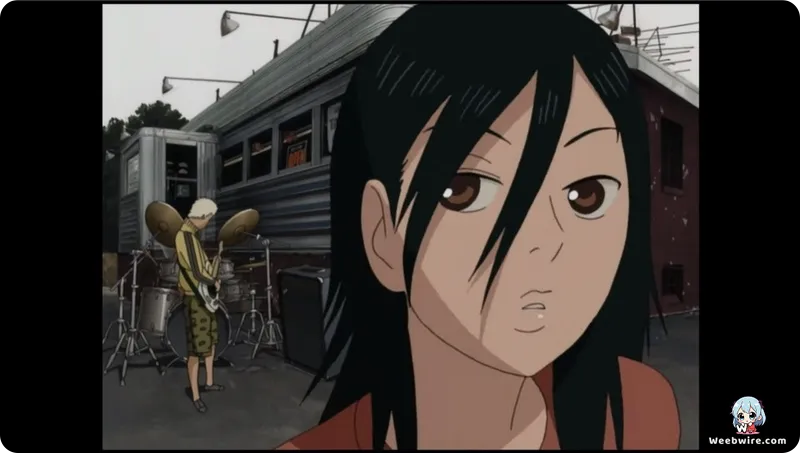Genius Muted: The Radical Artistic Decision Behind Beck: Mongolian Chop Squad's Most Famous Scene
3 months ago
Share this news:

The 2004 anime sensation Beck: Mongolian Chop Squad, masterfully adapted by the renowned studio MADHOUSE, remains a crucial touchstone within the music and slice-of-life genres. Unlike typical band narratives that lean into heightened drama, Beck garnered enduring praise for its unflinching, authentic portrayal of the arduous journey through the indie rock scene. Yet, beneath its grounded realism lie several contentious production choices, none more famous than the handling of protagonist Yukio "Koyuki" Tanaka's vocal performance a decision that fundamentally split the viewing experience between Japanese and Western audiences.
Throughout the critically acclaimed series, Koyuki's natural singing talent is meticulously built up, described as an almost supernatural force capable of moving massive crowds and evoking profound emotional responses. The narrative consistently tells the audience about the power of his voice, generating immense anticipation for its reveal. When the crucial moments arrived for Koyuki to finally unleash his gift on stage, the original Japanese production adopted a radical, even revolutionary, artistic strategy: the sound was deliberately muffled, obscured, or completely silenced.
The emotional weight of the scene was instead carried by the instrumental track, the stunned visual reactions of the audience, and the visceral energy of the performance. This polarizing approach was entirely intentional, championed by director Osamu Kobayashi and fully supported by original mangaka Harold Sakuishi. Their reasoning was elegantly simple: they believed that no real-world voice actor or singer could ever meet the impossibly high standard of genius attributed to Koyuki's voice within the storyline. To provide a standard, clear vocal track would, in their judgment, inevitably break the illusion and disappoint the viewer. By forcing the audience to rely on suggestion and anticipation, they preserved the mythos, treating the voice as something too perfect for human perception a daring example of directorial vision.
However, this artistic gamble posed a major localization challenge for FUNimation when producing the English dub. Recognizing that Western media conventions often demand an explicit auditory payoff, the intentional silence was deemed potentially confusing and anticlimactic. Consequently, the English production team opted to hire a professional singer to fully vocalize Koyuki's tracks during these pivotal songs. This resulted in English-speaking fans receiving the cathartic release of hearing the voice clearly, creating a dramatically different emotional arc compared to the quiet reverence of the Japanese original.

Furthermore, the series navigated unique legal waters. To preemptively avoid conflicts with the globally famous musician Beck Hansen, the series was released internationally as Beck: Mongolian Chop Squad, utilizing the band's official secondary name for clear market differentiation. The anime's depth is also reflected in its musical homages, such as guitarist Ryusuke Minami's cherished Gibson Les Paul, "Lucille" a direct, affectionate tribute to blues legend B.B. King's own iconic guitar. These details, combined with MADHOUSE's commitment to realistic animation and the authentic depiction of band struggles, solidify Beck: Mongolian Chop Squad as a timeless, meticulously crafted entry in the history of anime.